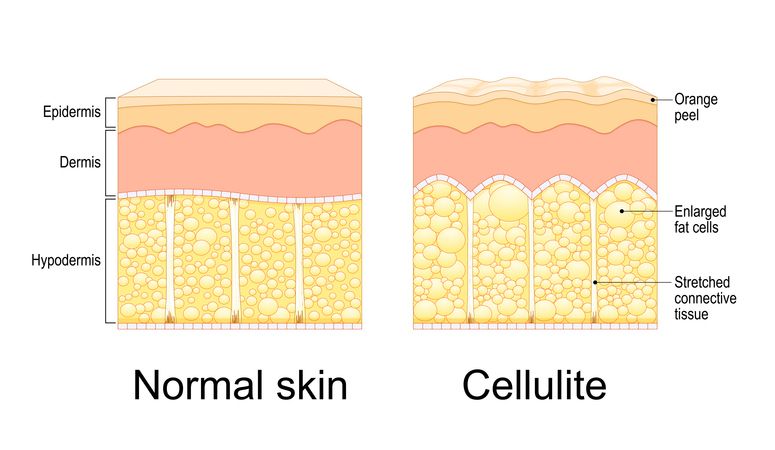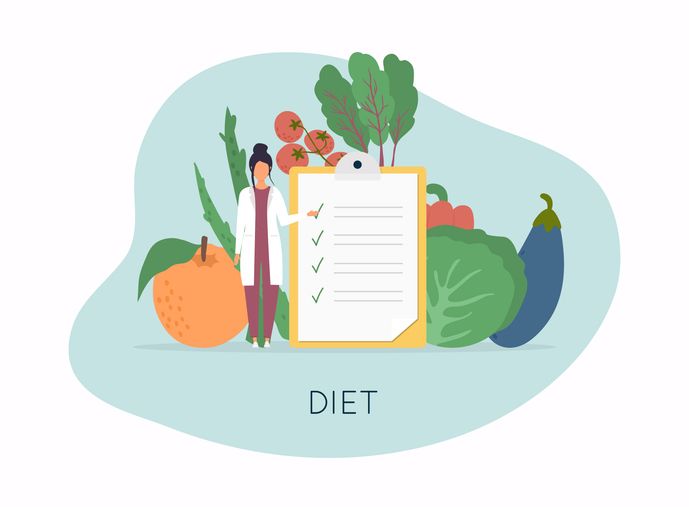

Book Now to Experience
F8 Hair Regrowth Treatment
1 Minute Self-Registration
Date should not be before minimal date
Author: Natalie Ng|21 April 2025
Hair loss can happen for many reasons, but poor nutrition is one of the most overlooked causes. Your hair follicles need a steady supply of nutrients to stay strong, grow properly, and avoid shedding too early. If your diet lacks the right vitamins and minerals, or you’re dealing with something like iron deficiency, it can lead to brittle hair, slow growth, and even patchy or severe hair loss. Certain nutrients are especially important for healthy hair. These include iron, biotin, zinc, vitamin C, vitamin D, and essential fatty acids. Each plays a specific role in supporting healthy hair growth—from helping red blood cells deliver oxygen to your scalp, to reducing inflammation around the hair follicle, and keeping the hair structure strong. Understanding the link between nutrient deficiencies and hair loss is important—especially in people at higher risk, like premenopausal women, pregnant women, or those with autoimmune diseases. Some people may also experience acquired biotin deficiency or low vitamin D levels without realizing it. If you’ve been noticing more hair shedding, thinning, or changes in texture, it could be a sign that your body isn’t getting enough of what it needs. Keep reading to learn how each of these essential nutrients helps promote hair growth, support overall hair health, and what to do if you suspect a deficiency.

1
Iron: The Foundation of Strong Hair Growth
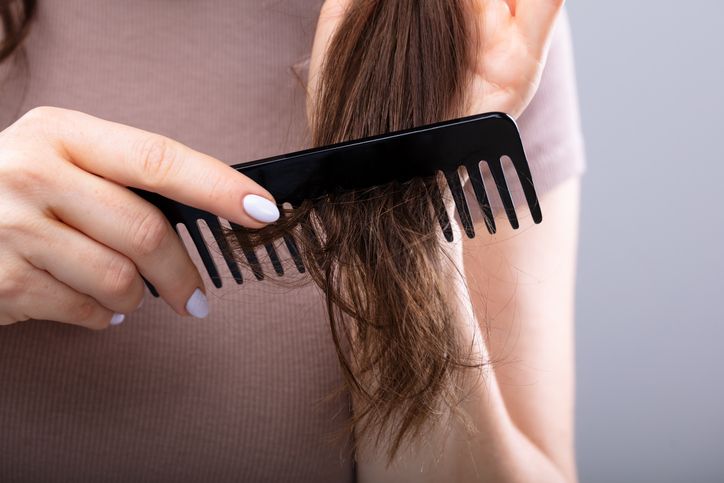
How Iron Supports Hair Growth
Iron Deficiency and Hair Loss
Focus on a Balanced Diet, Not Just Supplements
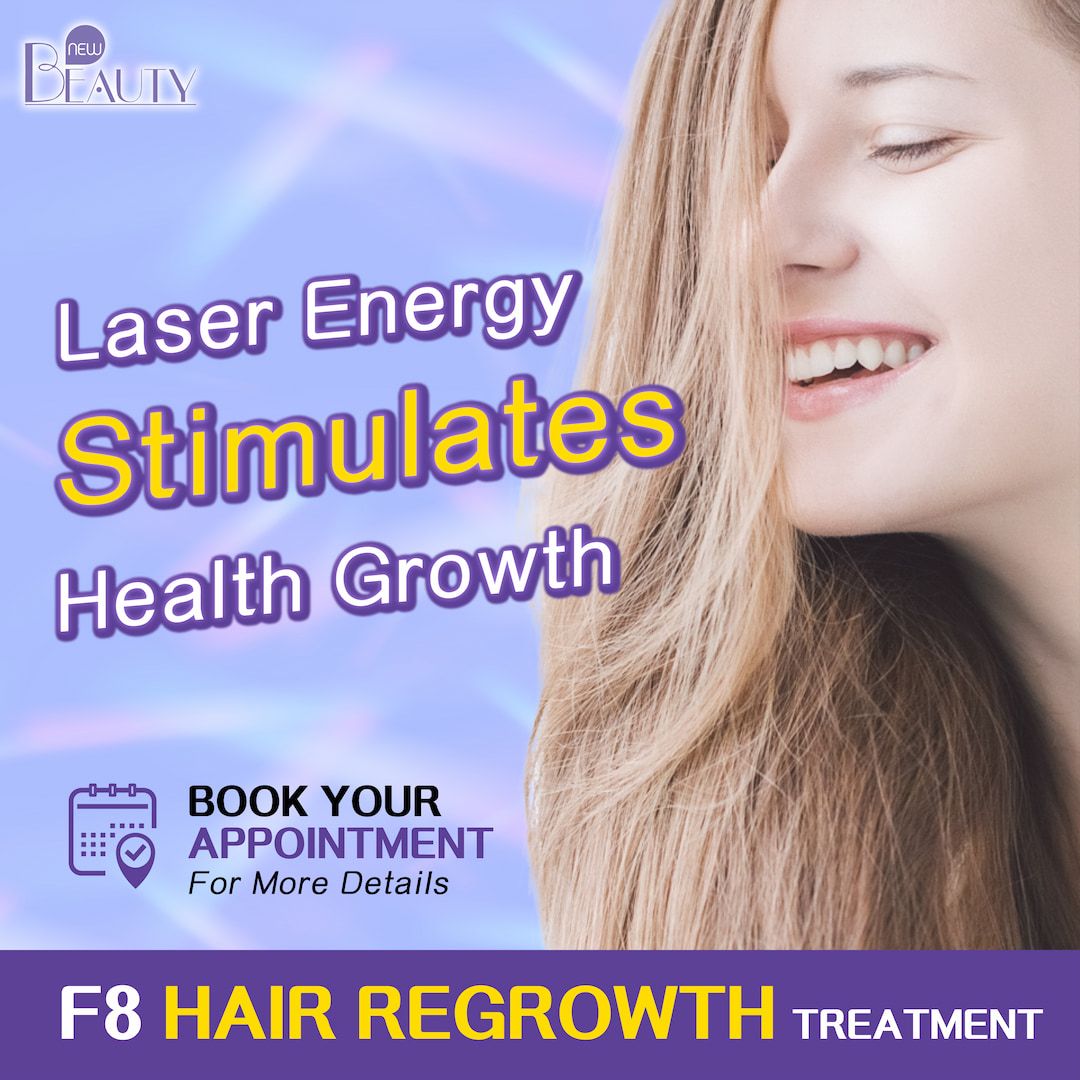

2
Biotin (Vitamin B7): Your Hair’s Building Block
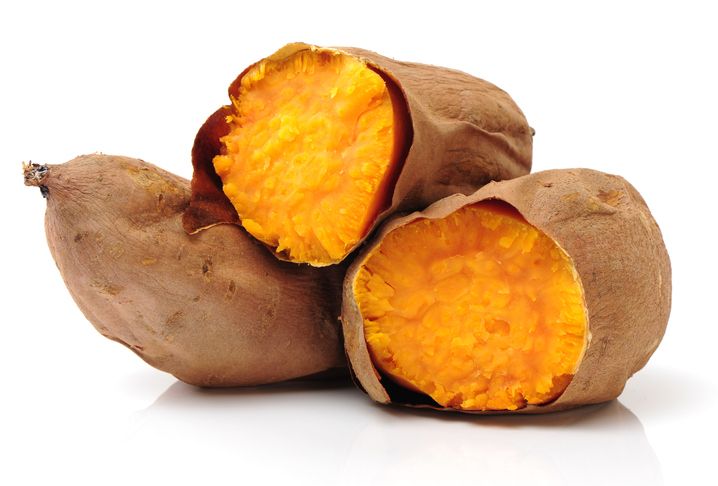
Why Biotin Matters for Hair Health
Natural Sources of Biotin
Read More

3
Vitamin D: The Sunshine Nutrient for Fuller Hair
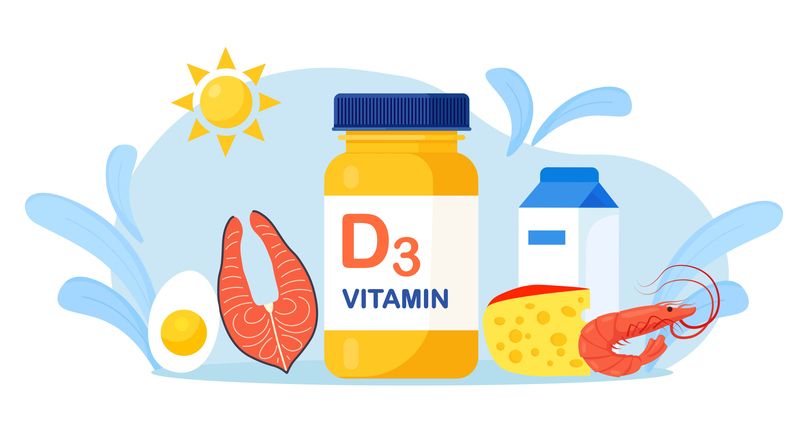
How Vitamin D Supports Hair Growth
Where to Get Vitamin D
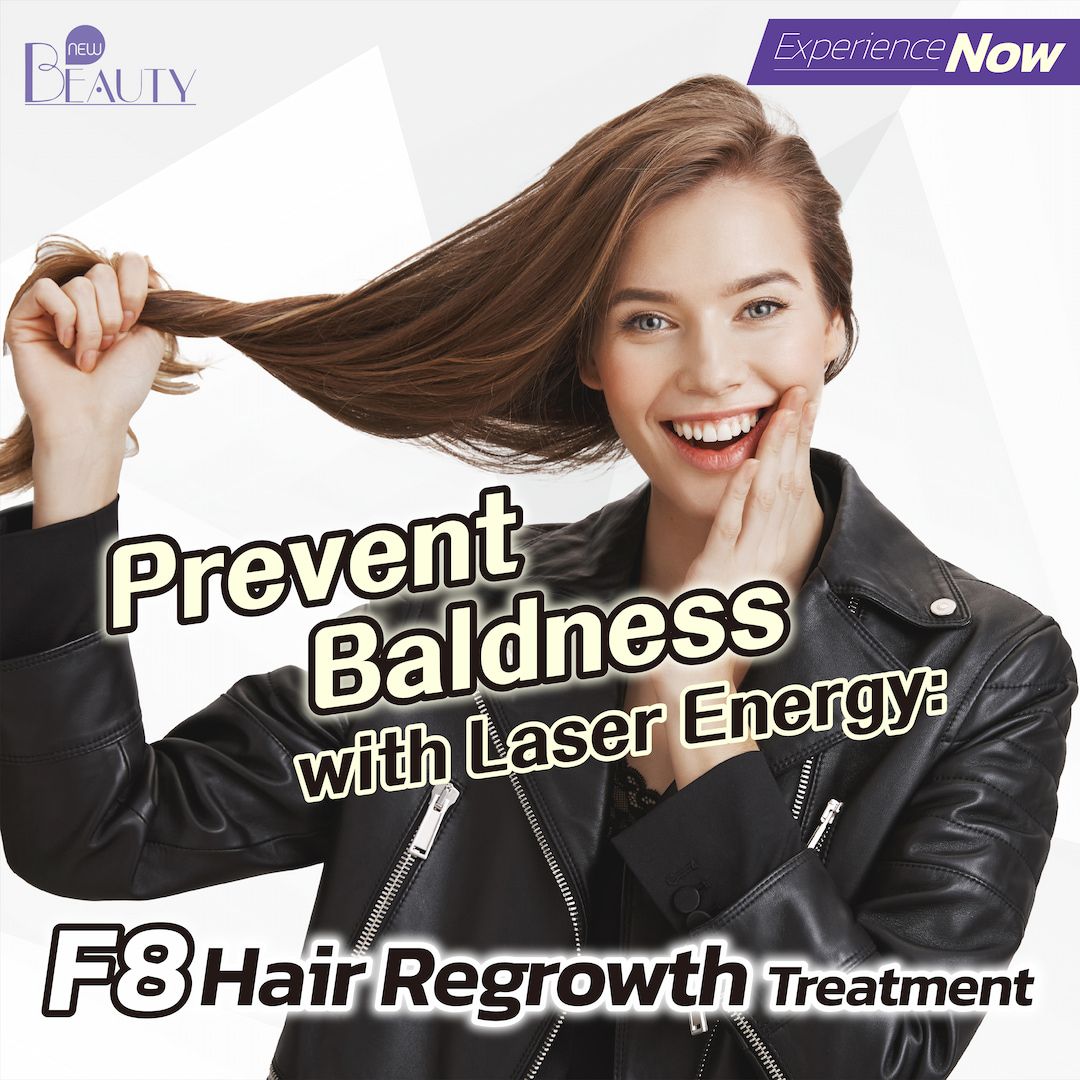

4
Zinc: Essential Mineral for Hair Follicle Health
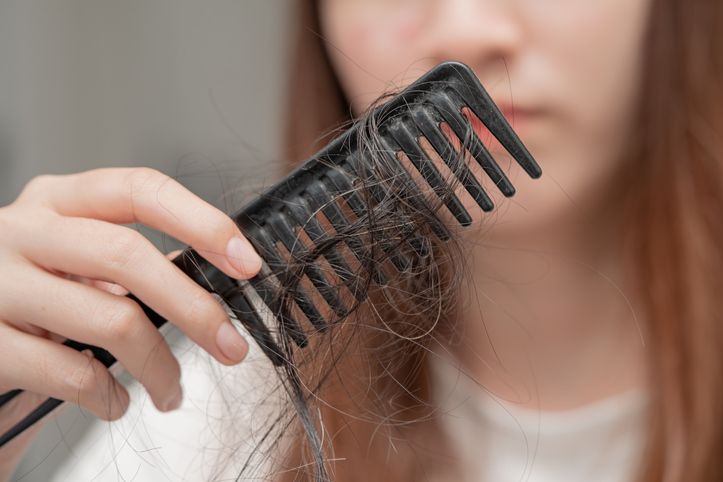
Why Zinc Matters for Hair Growth
Signs of Zinc Deficiency
Best Food Sources of Zinc
Food Source
Zinc (mg)
Serving Size
Oysters
74
6 medium
Beef
7
3 oz
Pumpkin Seeds
2.2
1 oz
Lentils
1.3
½ cup cooked
Chickpeas
1.3
½ cup cooked
Dairy products
varies
1 cup milk/cheese

Book Now to Experience
F8 Hair Regrowth Treatment
1 Minute Self-Registration
Date should not be before minimal date

5
Omega-3 Fatty Acids: Nourishment for Scalp and Strands
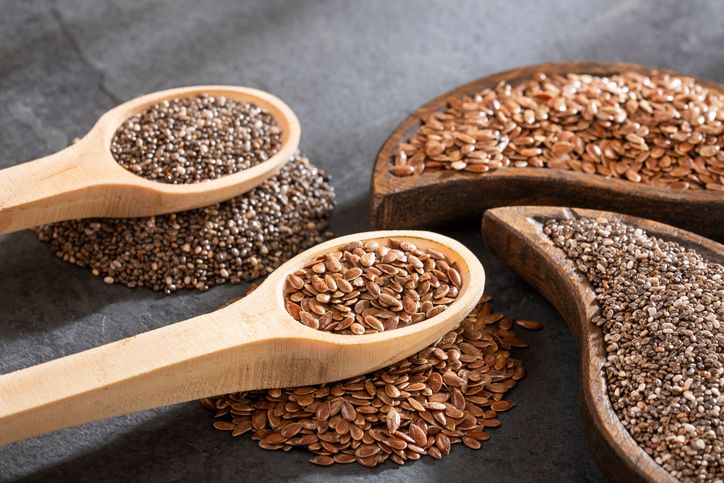
How Omega-3 Fatty Acids Support Hair Health
Food Sources of Omega-3 Fatty Acids


6
Protein: The Structural Support for Hair Growth
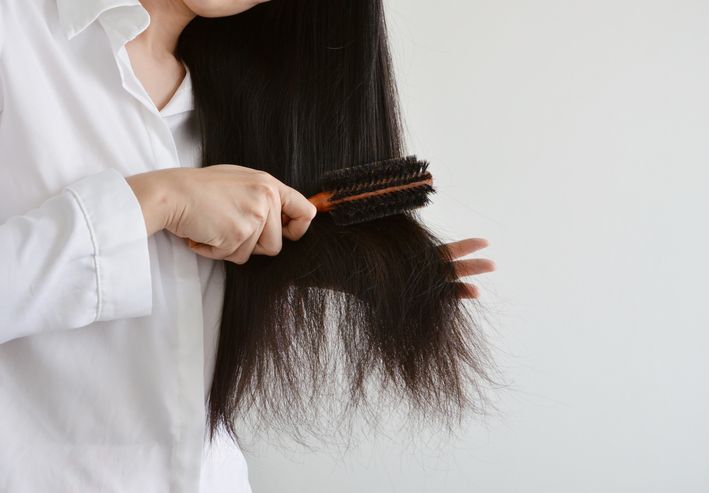
Why Protein Is Essential for Hair Health
Protein-Rich Foods That Support Hair Growth
Protein Source
Protein (g)
Additional Benefits
Eggs
6–7
Contains pantothenic acid
Fish (e.g., salmon, tuna)
20–25
Source of retinoic acid and fatty acids
Legumes (lentils, beans)
15–20
Rich in amino acids
Poultry
25–30
Lean complete protein
Dairy (yogurt, cheese)
8–15
Contains B vitamins
Read More

7
Vitamin C: Collagen Production for Healthy Hair
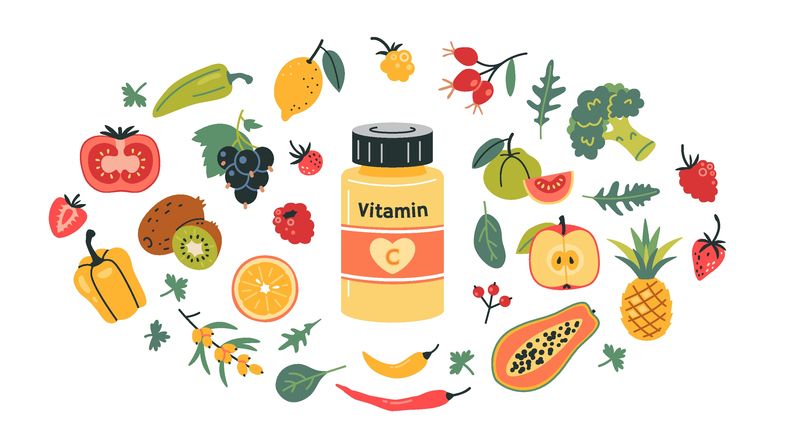
How Vitamin C Supports Hair Growth
Best Sources of Vitamin C


8
Supports Hair Nutrition and Growth With the F8 Hair Regrowth Treatment
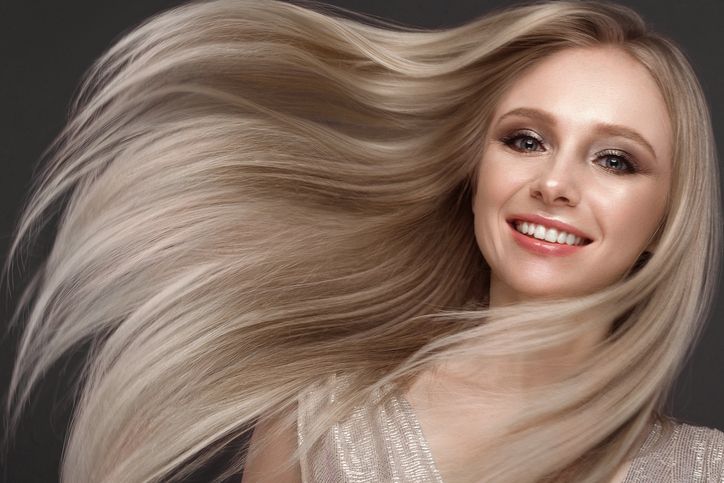
What Is the F8 Hair Regrowth Treatment?
How It Works
How It Complements Hair Nutrition
Advantages of the F8 Treatment
FAQ
How Long Does It Take to See Results From Hair Nutrition Supplements?
You'll typically need to wait 3-6 months to notice visible results from hair nutrition supplements, as hair growth cycles occur in phases. Your existing hair must complete its cycle while new, healthier hair emerges. Consistency is key - you'll need to maintain regular supplementation and combine it with a balanced diet to see ideal results. Individual factors like genetics, overall health, and supplement quality can impact your timeline.
Can Stress Override the Benefits of Proper Hair Nutrition?
Yes, stress can definitely override the benefits of proper hair nutrition. When you're stressed, your body enters survival mode, which diverts nutrients away from non-essential functions like hair growth. Chronic stress increases cortisol levels, which can disrupt nutrient absorption, restrict blood flow to hair follicles, and trigger excessive shedding. While maintaining good nutrition is vital, you'll need to manage stress levels through relaxation techniques, exercise, and lifestyle changes to maximize the benefits of hair-supporting nutrients.
Are There Any Foods That Can Actually Cause Hair Loss?
Your hair can suffer from certain dietary choices. You'll want to watch out for these common culprits: 1) Mercury-rich fish like tuna and mackerel can trigger hair loss, 2) excess vitamin A from supplements can cause shedding, and 3) foods high in sugar can disrupt hormone levels that affect hair growth. Processed foods with artificial preservatives can also contribute to thinning hair.
Should Hair Supplements Be Taken With Meals or on Empty Stomach?
For ideal absorption of hair supplements, you'll want to take them with meals, as many essential nutrients are fat-soluble and require dietary fats for proper absorption. However, some supplements like iron should be taken on an empty stomach, preferably in the morning, and away from calcium-rich foods or coffee. Always check the specific instructions on your supplement label and consult with a healthcare provider for personalized timing recommendations.
What Time of Day Is Best to Take Hair Growth Vitamins?
For ideal hair growth vitamin absorption, you'll want to take them with breakfast or your first meal of the day. If you're taking multiple supplements, split them between morning and early afternoon meals. Don't take them at night, as this can interfere with your sleep quality and reduce their effectiveness.

Book Now to Experience
F8 Hair Regrowth Treatment
1 Minute Self-Registration
Date should not be before minimal date
Recommended Articles
COPYRIGHT© NEW BEAUTY MANAGEMENT LIMITED 2026. ALL RIGHT RESERVED.

